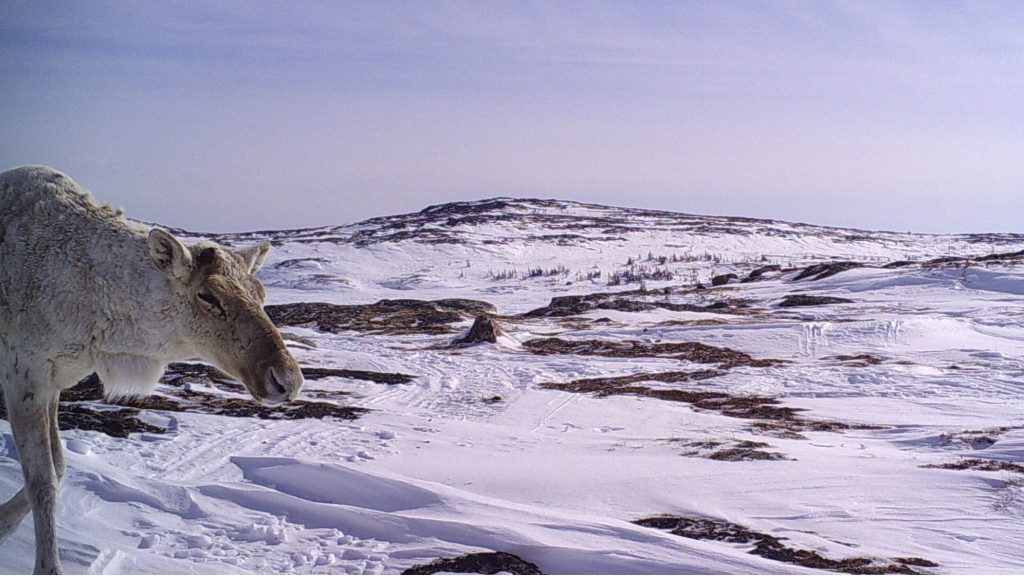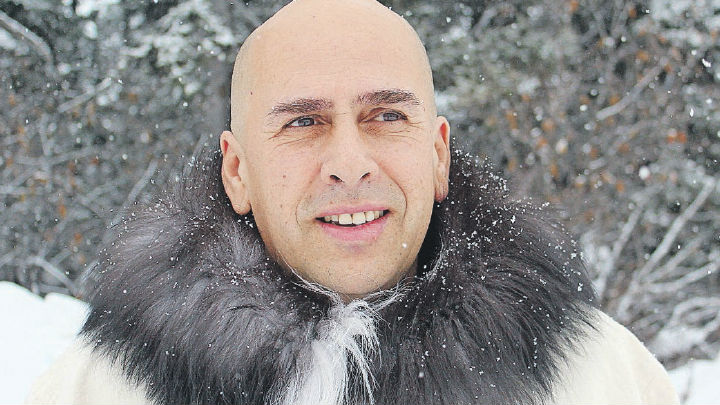Southern Inuit in Atlantic Canada renew call for hunters to refrain from George River caribou harvest

With animal numbers continuing to plummet, the council representing southern Inuit in the Canadian region of Labrador is continuing its call for a moratorium on harvesting from the George River caribou herd.
“The rapid decline in the caribou population in Labrador is a stark reminder to all who care about the caribou that action must be taken to ensure no further decline,” said Todd Russell, the president of the NunatuKavut Community Council (NCC), the governing body for the approximately 6,000 Inuit of south and central Labrador region of the Atlantic Canadian province of Newfoundland and Labrador.
“We are, therefore, asking that all NunatuKavut hunters refrain from hunting caribou until we are sure that the herds are healthy and well again,” Russell said in a news release on Monday.
“I believe that we have a responsibility as Inuit, as do other Indigenous and non-Indigenous peoples, to do all we can to help protect the caribou and their habitat. We want our future generations to know about caribou and to always have it be a part of Southern Inuit culture.”
Disturbing decline
The most recent census of the herd was completed in July 2018 by biologists from Newfoundland and Labrador and the neighbouring province of Quebec, along with Indigenous representatives from both provinces.
The herd was estimated at 5,500 animals.
That’s a 38 per cent decline since 2016 and a 99 per cent decline since 2001.
Indigenous cooperation on both sides of the provincial border
Indigenous peoples in both Newfoundland and Labrador, and the neighbouring province of Quebec, have become increasingly troubled over the years by the mysterious caribou herd declines.
Seven Indigenous groups in both provinces sit on the Ungava Peninsula Caribou Aboriginal Roundtable (UPCART), a body set up to help preserve and manage the herds.

UPCART is made up of NunatuKavut; the Nunatsiavut government, which represents the Inuit of northern Labrador; Makivik Corporation, the organization that represents Quebec Inuit, the Naskapi Nation of Kawawachikamach in Quebec, the Grand Council of the Crees of Eeyou Istchee/Cree Nation Government (GCCEI/CNG) in Quebec; the Innu Nation of Labrador; and the Nation Innue, which represents Innu communities from Quebec.
In 2017, UPCART signed an agreement to implement a long-term caribou management strategy that included an Indigenous sharing agreement, a research and monitoring plan, habitat management and environmental impact plan, a stewardship, education, and communication plan, and a social and economic plan.
But despite the sharing agreement which would allow for a one per cent limited harvest of the George River caribou herd, the NCC said on Monday the situation had become too critical.
“The NCC is recommending that all hunters refrain from hunting given the latest population estimate,” the news release said.
“NCC strongly urges the Province of Newfoundland and Labrador to also do its part to protect the caribou and has cautioned the Province regarding the permitting of any hunting of this herd.”
Growing urgency
The comments made by NunatuKavut Community Council President Todd Russell on Monday, echo those made by other regional Indigenous groups in recent months calling on their members to refrain from hunting the caribou until numbers climb.
In November, the Grand Council of the Crees (Eeyou Istchee) and Cree Nation Government passed a resolution banning harvesting from the George River herd, including by beneficiaries of the James Bay Northern Quebec Agreement, a 1975 Indigenous land claim settlement that, among other things, outlines the hunting and harvesting rights reserved for Indigenous peoples.
In December, Makivik Corporation, supported a resolution “voluntarily refraining from harvesting from the George River herd until the herd has recovered.”
Also in December, Tony Andersen, the minister of Lands and Natural Resources in the government of Nunatsiavut, called for a hard stop to harvesting from the herd saying “…we have reached a point where the George River herd is struggling to survive and sacrifices have to be made if there is to be any hope of recovery.”
Like Russell on Monday, Andersen also called on the provincial government of Newfoundland and Labrador to do more to protect the herd.
Write to Eilís Quin at eilis.quinn(at)cbc.ca
Related stories from around the North:
Canada: Inuit in Atlantic Canada call for stop to George River caribou harvest, Eye on the Arctic
Finland: Gold mining in northern Finland hurts reindeer, says Natural Resources Institute, Yle News
Norway: Saami Council says planned Arctic railway threatens reindeer herders, The Independent Barents Observer
Russia: Russia plans fenced parks to confine reindeer herding in Arctic, The Independent Barents Observer
Sweden: Indigenous reindeer herders request emergency aid after drought, wildfires ravage Sweden, Eye on the Arctic



